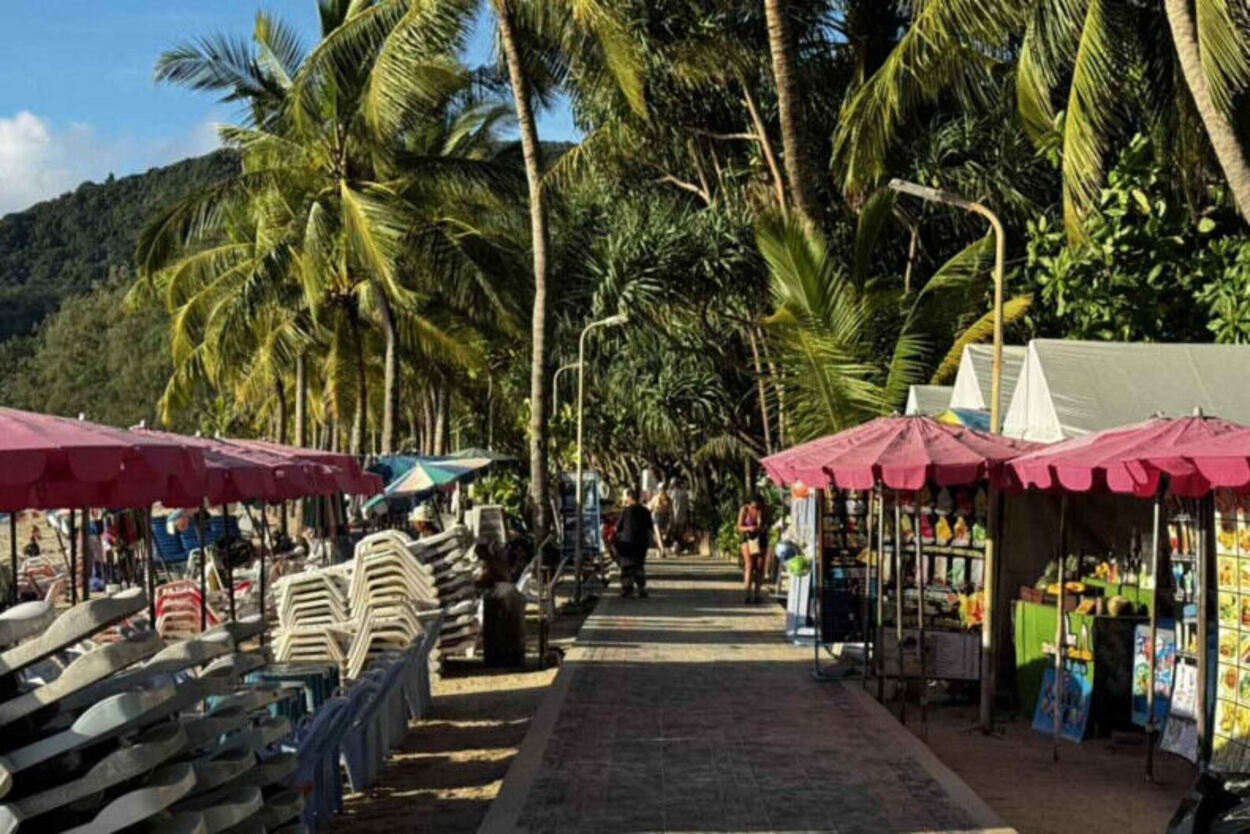Thai restaurant operators are urging the government to revive the “Khon La Khrueng” co-payment subsidy scheme, saying current domestic tourism incentives such as “Tiew Thai Khon La Khrueng” are insufficient to support the sector during the low season.
Initially introduced during the Prayut Chan-o-cha administration, Khon La Khrueng subsidised 50% of food, beverages and general goods costs for registered users, capped at 150 baht per person per day. The scheme was credited with boosting consumer spending and offering relief to small businesses hit hard by the COVID-19 pandemic.
The ongoing Tiew Thai Khon La Khrueng program subsidises up to 50% of hotel accommodation costs, capped at 3,000 baht per night for five nights. Tourists also receive an e-coupon worth up to 500 baht per day, redeemable at select tourism-related businesses such as restaurants and spas. However, restaurateurs say the impact of this program is limited.
Kamol Meechaipattanakit, a member of the southern subcommittee of the Restaurant and Goods Product Association, said reduced agricultural prices in the South have weakened local purchasing power, while rising raw material and energy costs have constrained restaurant operations. He reported that restaurants in Surat Thani — especially on islands such as Samui and Phangan — are experiencing sluggish sales, with a projected decline of over 20% year-on-year during the 2025 low season.
Kamol, who owns four restaurants in Surat Thani, said operators cannot raise prices to offset costs due to weak consumer demand. “The restaurant business in the area faces a tougher time now than during the pandemic,” he said.
Pisut Suttijindawong, vice-president of the Phuket-Andaman Restaurant Club and a Phuket restaurateur, echoed the concerns. He said the number of domestic travelers has declined due to economic stagnation and safety concerns, including recent discoveries of explosive devices in Phuket. Meanwhile, Chinese tourist arrivals — a key group during the off-season — have also dropped.
Pisut said that while Tiew Thai Khon La Khrueng is designed to promote local tourism, many travelers prefer to dine within their hotel properties, leaving local eateries with limited benefits. He believes reviving the Khon La Khrueng co-payment model would offer a more direct and inclusive stimulus, particularly for smaller food vendors and village-level operators.
Both Kamol and Pisut also noted that fluctuating revenue patterns make it difficult for restaurant owners to secure financing. They called for regulatory reforms that would allow the sector greater access to credit and financial support tailored to its seasonal nature.




